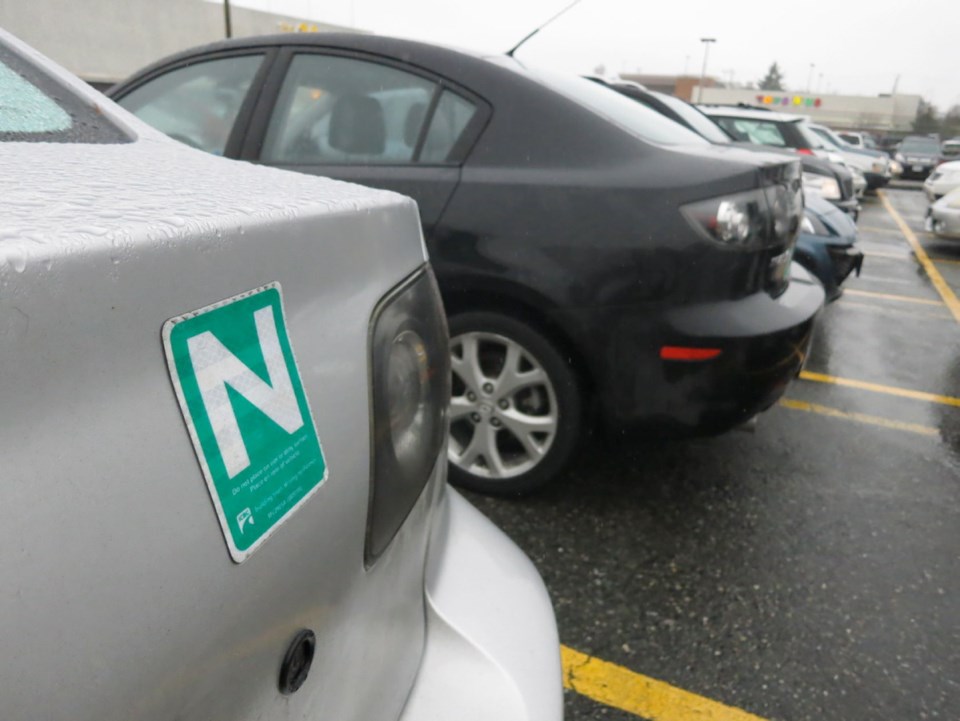The Insurance Corporation of B.C. has a huge deficit, projected to be in the neighbourhood of $1.3 billion for the upcoming year. The corporation is asking for public comment on ways to reduce and possibly eliminate the looming financial crisis.
Driver education is part of the solution. For the first time ever, the corporation has released statistics that show that driver training contributes to the reduction of costs to their bottom line. The Graduated Licencing Course (GLC), which awards high school students two credits toward graduation and a six-month reduction of the two-year “N” phase, has proven to reduce the crash rate of new drivers between nine and 13 per cent, depending on geographic and other variables.
This latest information further validates what many in the driving school business have known for some time. It is why other provinces with private insurance offer immediate discounts to new drivers who choose to take such a course.
ICBC prefers to reward performance, rather than projected performance. The study results also noted the reduction in infraction rate of four per cent and a 19Â per cent increase in the pass rate on the provincial practical road test. This is good news for the driving-school community, and the public as well. Given these recent statistics, it is important to foster a climate of rewards for those new drivers graduating from the GLC experience. Cash rewards are probably out of the question, considering the finances at the corporation.
Here are some suggestions that would encourage more students to take the GLC, and very likely further reduce the crash rate among new drivers.
At present, only about 50 of the almost 700 driving schools offer the GLC. Only one in every 20 new drivers graduate from the offering. This course has a very comprehensive highway component. New drivers who pass their initial driving test seldom, if ever, drive at a speed beyond 50 kilometres per hour on their initial road test. For the following two years (18 months for the GLC students), they must all display the dreaded “N” until they pass the second road test. By providing additional time-sensitive incentives, ICBC could well encourage an even greater reduction in the crash rate, increase in the pass rate and reduction in the infractions.
Because GLC students have a proven performance on the highway within the guidelines provided, the requirement for a second road test could be eliminated. Students would have to remain blamable-crash- and infraction-free to qualify for the second road test exemption.
This would encourage more new drivers to attend the GLC. It would also make it more attractive for more driving schools to qualify as GLC instructors and training facilities.
There is an inherent problem with the present timing of the attainment of an unencumbered licence. The age of 19 is now the pivotal time when most new drivers get rid of their N, having had the L for a year and the N for two years.
This ill-thought-out timing has the young person able to legally consume alcohol and drive without learning restrictions, most often on the same day — their birthday, in many cases. It has been a recipe for disaster.
When new drivers get their licence at the age of 18 and six months, the greater the separation between the driving and drinking privilege.
The B.C. GLC is the best in North America. It is the envy of every jurisdiction. The only other province and state that come close are Ontario and Oregon, respectively.
Time is money. It is time to provide non-monetary incentives to new drivers, which will in turn save the corporation money with fewer claims, infractions and driving-test appointments.
Steve Wallace is the owner of Wallace Driving School on Â鶹´«Ă˝Ół»Island. He is a former vice-president of the Driving Schools Association of the Americas, a registered B.C. teacher and a University of Manitoba graduate.



